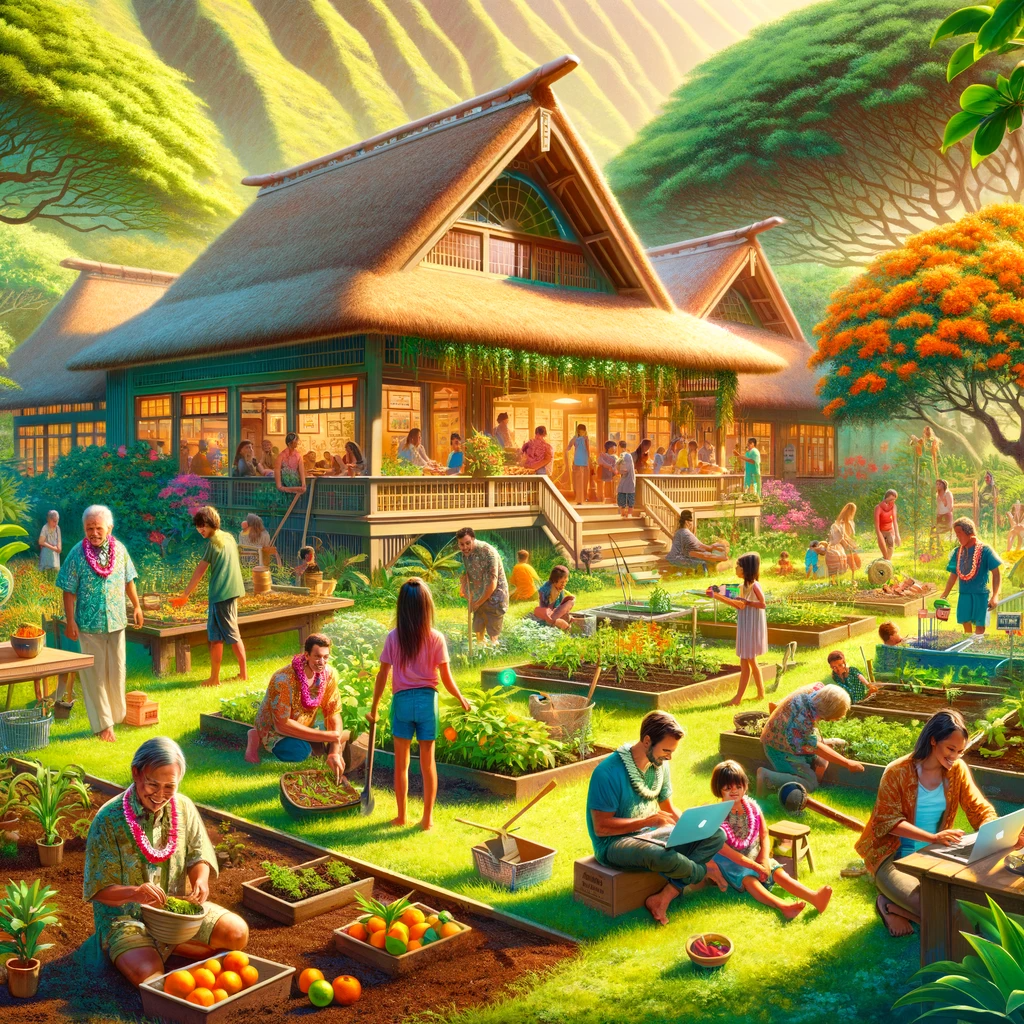The “Friendship House” and its “Sustainable Food Forest/Backyard Garden Green Demonstration Project” run a social club welcoming teens, families, professionals, interns, volunteer staff, and elder mentors (Kapuna).
Our social club offers a variety of activities for members to enjoy, such as making new friends, earning money, exploring career interests, and participating in fruit tree propagation, gardening, and field trips. We provide online and hands-on gardening curriculum called Garden Lab, where students develop sustainable food forest projects. Members can also learn computer skills, resume writing, small group communication, problem-solving techniques, and community service. Our diverse membership includes teens, elders, families, volunteers, interns, and mental health professionals with trauma-informed skills. We prioritize holistic health and offer cutting-edge treatments focusing on resilience rather than pathology.
The social club offers a fun environment where teens and elders meet weekly to establish successful partnerships. Teens provide IT consulting for elders, while elders serve as positive role models for the teens. After 90 days of successful weekly sessions, mentors from both groups focus on vocational interests. Teens receive financial stipends to support their chosen goal activities.
We engage teens and elders as part of the core planning and development for the entire demonstration project and in curriculum design.
Our onsite and online interactive curriculum intends to support social leadership skills, drug-free health and mental healthy lifestyles, potential career interests and goals, sustainable agricultural and cottage industry, business skills minded activities within a therapeutic, community affirming, 21’st century skills empowerment framework.
The Program
Our program offers two apprentice levels with increasing stipends as participants advance. Graduates receive mentorship for cottage industries or internships. We focus on career goals, self-regulation, computer literacy, problem-solving, sustainable practices, and vocational opportunities. Addressing self-esteem and organizational issues, we provide trauma-informed mental health intervention for mild-moderate conditions. Referrals come from various sources, and we collaborate with governmental entities, medical providers, and insurance companies.
Thank You, HCF Fund: Kukio Community Fund of the Hawai‘i Community Foundation for the support in 2020 Virtual Leadership Program












